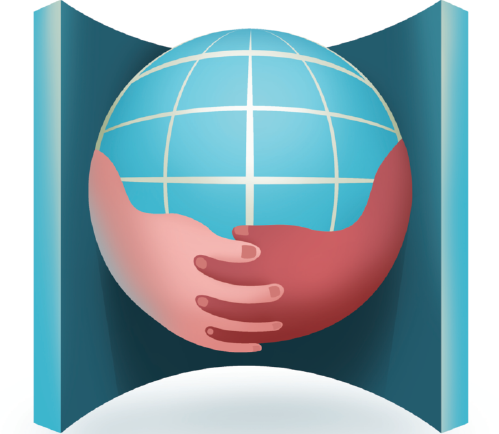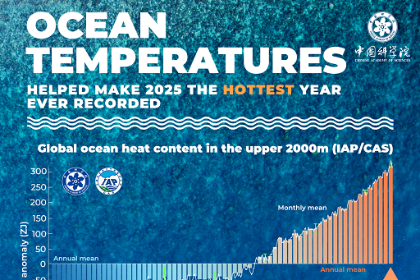Change for the better
Global South's rise is an opportunity to create a fairer and more peaceful world


Global South's rise is an opportunity to create a fairer and more peaceful world
Chinese President Xi Jinping often says that our world is witnessing great changes unseen in a century. How is the 21st century fundamentally changing from the 20th century? In two ways. One, the economic and strategic hegemony of the West is rapidly coming to an end. Two, the world is seeing a simultaneous and dramatic rise of the Global South. These twin changes are now opening up real possibilities for a more democratic, just and peaceful world order.
The Global South — a broad non-geographical community of developing and underdeveloped countries — is now on an unstoppable march. History's dominant trend in the 21st century is toward equitable global development, assured global security and democratic global governance. This was not possible in previous centuries when Western imperialist powers established their hegemony over the rest of the world — first in the form of humiliating colonial subjugation and the brutal pillaging of resources, then, after World War II, through the power of financial capitalism and domination over global institutions. In both these phases, the West inflicted horrific wars and untold suffering on the international community. The era of colonial slavery was ended by the heroic struggles of freedom-loving peoples in Asia, Africa and Latin America. Now, the subsequent era of Western economic and political supremacy is also coming to an end.
This new march of world history is validating a fundamental principle — namely, development, which is a universal human need and right, cannot be the monopoly of a few to the exclusion of many. People around the world are now aspiring to live a dignified, peaceful and happy life, free of poverty and the deprivation of basic necessities. Simultaneously, non-Western countries have also been making a justified demand to democratize the world order so that they can participate in global governance as equal members.
The Global South's rise is propelled by three drivers. The first is the power of demography. Out of the global population of 8 billion, only 15 percent live in the West. It is rightly said that demography is destiny. Clearly, the peoples of the Global South are taking their destiny in their own hands with new modes of mutual cooperation, which the West is finding increasingly difficult to obstruct.
Second, this process of de-Westernization is accompanied by multipolarity and the emergence of several non-Western multilateral organizations committed to sustainable development and the peaceful resolution of conflicts. Thus, the BRICS has already overtaken the G7 in terms of both demographic power and economic power. Also, whereas the G7 is a closed group of declining elites, 19 new emerging economies are seeking to join the BRICS group. The Shanghai Cooperation Organization is promoting trust-building relations among countries in the vast landmass of Eurasia and South Asia. China, in particular, is playing a leading role in many multilateral development initiatives such as the Belt and Road Initiative, the New Development Bank and the Asian Infrastructure Investment Bank. It is now also emerging as a responsible mediator to end disputes. The recent rapprochement between Iran and Saudi Arabia was an important triumph for Beijing's peace-promoting diplomacy. In another welcome development, the Arab League re-admitted Syria in May, much to the chagrin of the Western powers which had made the Middle East their playground for inciting wars and civil wars.
Third, many developing countries in the Global South have convincingly demonstrated their ability to overcome difficult development challenges without depending on the West. China's success in lifting 800 million people out of poverty in just four decades is an inspiring example. While China has forged far ahead on multiple fronts, other countries such as India, Indonesia, Brazil — and even Rwanda, a small African nation that suffered a genocidal civil war — are also making impressive strides in technology, infrastructure and improving the living standards of their citizens. Indeed, the new ports, airports, railway networks, digital economy platforms and healthcare systems in some non-Western countries are already superior to the crumbling physical and social infrastructure in parts of the United States.
These are heartening features of the rise of the Global South. Nevertheless, it still has a long way to go. It must take the following measures to remove the hurdles in the way of a new global order that ensures development and security for all.
First, it must frustrate the designs of Western powers, who, afraid of losing their global hegemony, are trying to create divisions among developing countries. For this, they have raised the bogey of the "Chinese threat" and resorted to unfair sanctions to "decouple" and "de-risk" from the Chinese economy. For example, British Prime Minister Rishi Sunak's recent statement that "China poses the greatest danger to global security and prosperity" is nothing but a lie meant to cover up the frustration of a once-imperial power that has lost its status. Similarly, new security groupings such as the Quad and AUKUS will imperil peace in the Asia-Pacific region.
Second, the Global South should accelerate the process of de-dollarization of the global economy. Already the US dollar's share in global reserves has fallen from 73 percent in 2001 to 47 percent in 2022. Ending the dollar's hegemony will greatly weaken the United States' ability to weaponize its currency to make unfair gains in global trade to the detriment of developing and underdeveloped countries.
Third, there is also an urgent need to resolve many entrenched differences among important countries in the Global South. For example, continuation of the border row between India and China, along with its negative effect on the overall bilateral relations between the two major Asian countries, has given Western powers an opportunity to fish in troubled waters. Before the forthcoming Shanghai Cooperation Organization, BRICS and G20 summits, New Delhi and Beijing should take certain trust-enhancing and win-win measures, foremost of which is a mutual assurance that the two neighbors are not a threat, but a significant developmental opportunity, to each other.
Finally, leaders of the Global South should make it clear that theirs is not an anti-West block. The new world we seek to build in the 21st century should be one in which all countries are friends, and none is an enemy. It should be one in which all are regarded as equal, regardless of their size, religion, culture, political system, economic ranking and military power, and none can become a new hegemon. And it should be one in which there is the highest degree of mutual respect and solidarity aimed at creating a future free of injustice, wars and violence. In other words, it must be based on acceptance of the ancient wisdom of all human civilizations — namely, that all people belong to one indivisible family, whether they reside in the East, West, South or North.
The author is an advocate of India-China-Pakistan cooperation for a New South Asia and was an aide to India's former prime minister Atal Bihari Vajpayee. The author contributed this article to China Watch, a think tank powered by China Daily. The views do not necessarily reflect those of China Daily.
Contact the editor at editor@chinawatch.cn.

































